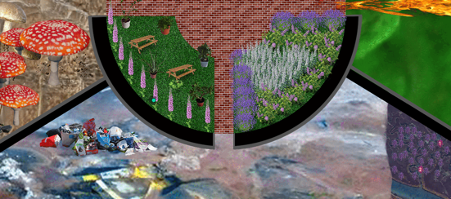Small Grants Call 2022/23: RESHAPE, RESIST, REBEL
The CHASE Climate Justice Network emerged as a response to the ongoing, intersecting crises of our planet and a need to come into dialogue with these issues in our research. Often, we feel loss and guilt at the destruction, exploitation and injustices taking place around us (DeSilvey and Naylor, 2011). To challenge this mindset, the 2022/23 Climate Justice Small Grants Fund calls for projects that explore ways to reshape, resist and rebel against current practices and future scenarios, as a step towards a future we want, rather than one we feel forced to endure (Domanska, 2008).
The Small Grants Project Fund is open to but not limited to creative projects (audio, visual, film, creative writing, small exhibitions, zines and other publications), small events (reading or discussion groups, workshops, panels with invited speakers, well-being initiatives) and the creation of practical toolkits or shared resources. We invite project proposals with a budget of up to £600, from which five will be selected.
We have created a list of questions to inspire different projects and inquiries. These are not prescriptive, rather they are intended to provide starting points:
What practices bring us closer to those we need to be in alliance with to build better futures? What kind of joyful communions can we create, and how can they help us reshape, resist and rebel?
How might slow thought, research, and practice help to build more equitable futures? Do the intersecting crises of our planet demand a reimagining of time and temporality? Are ideas of ‘slowness’, ‘de-growth’, or a return to a ‘simpler life’ a way of escaping the loop of capitalist destruction? Or are they sometimes a nostalgic deferral of responsibility for a privileged few?
Who gets to shape the futures we imagine and we build? How can we resist these imaginaries and re-include those who are shut out, including marginalised peoples, more-than-human life, technologies and landscapes?
What does the university of the future look like? How can we, as researchers, creatively resist extractivist frames when they increasingly shape the systems that sustain research?
What roles do future imaginaries play? Can they seed better futures, or break open cracks through which better ones can grow? Or is visioning a panacea for a present in crisis? If not, what forms of action do they spur and motivate?
Time scales and selection criteria
Key dates:
Deadline for applications: Midday, Monday 23rd January, 2023
Successful applicants will be notified by Monday 20th February, 2023
All recipients will be invited to discuss their plans or work-in-progress on at our sharing event, presently scheduled for 22nd April 2023
Grant holders will be expected to have concluded their projects by the end of August 2023
Applications should include an applicant or co-applicant who is a PhD student or member of staff at a CHASE institution. If you would like to apply, but need help locating a co-applicant, please get in touch: chaseclimatejustice@protonmail.com
The applications will be assessed by a panel including members of the CHASE Climate Justice Network and invited assessors. In assessing your projects we will consider:
Is the project doable within the given timeline?
Does it meet the overall objectives of the CHASE Climate Justice network?
Is the budget well-planned and feasible?
Is the project sensitive to questions of intersectionality and justice?
Is it mindful of its direct environmental impact (in terms of travel, materials etc)
How to apply
Please fill out the following application form:
CHASE Climate Justice Small Grants Application Form
Then email it to chaseclimatejustice@protonmail.com
If you have any questions about the call for proposals please get in touch.
For examples of the projects funded under last year’s scheme please see our previously supported projects.
References
DeSilvey, C. and Naylor, S. (2011) ‘Introduction’, in C. DeSilvey, S. Naylor, and C. Sackett (eds) Anticipatory history. Axminster: Uniformbooks.
Domanska, E. (2008) ‘A conversation with Hayden White’, Rethinking History, 12(1), pp. 3–21. Available at: https://doi.org/10.1080/13642520701838744.

